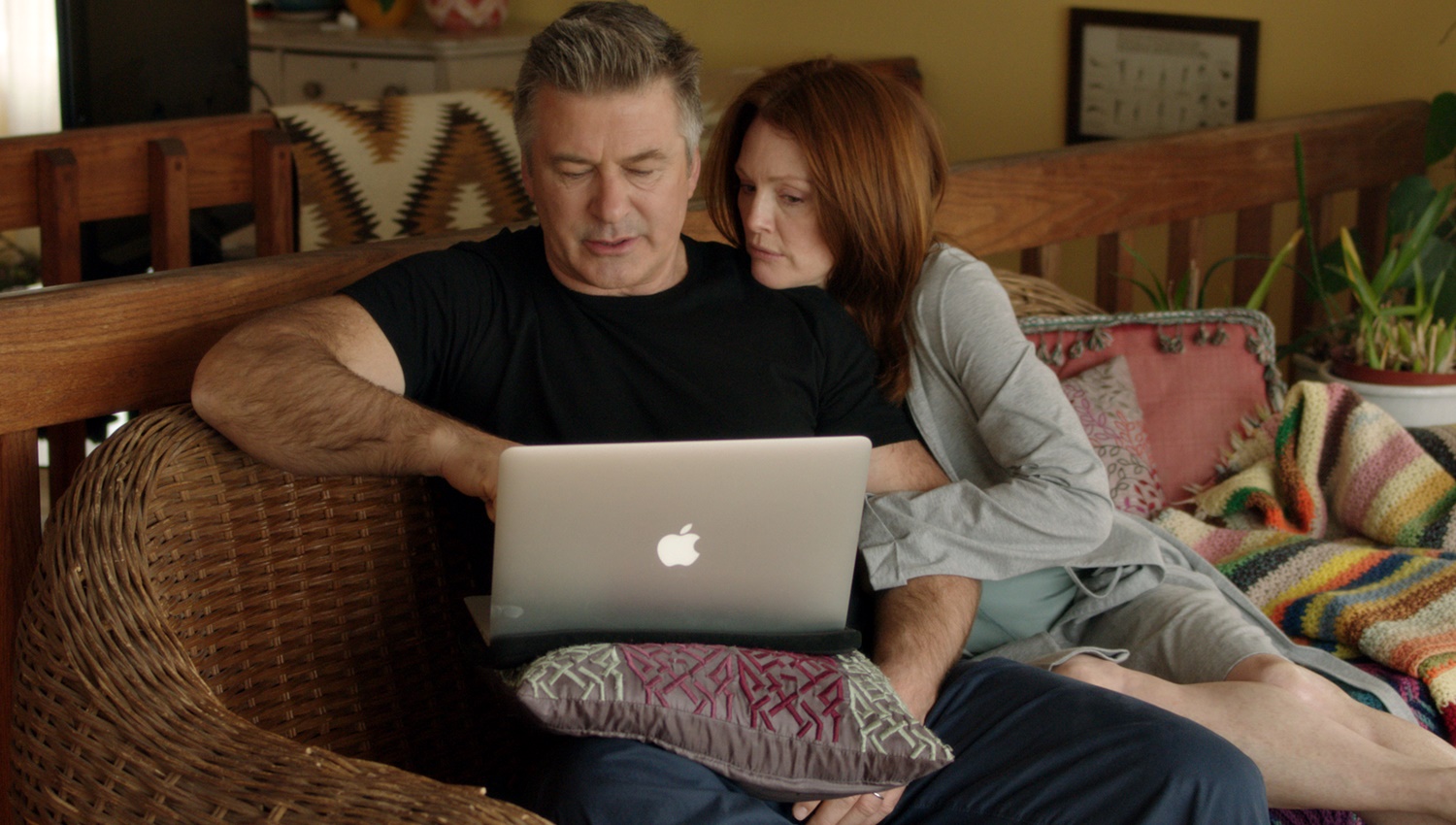
Still Alice
Dustin Chase
The 2014 Oscar race was in need of a frontrunner for best actress, and following the first screening of Still Alice at the Toronto Film Festival, they found it in long overdue Academy Award nominee Julianne Moore (The Hours, Far From Heaven). Originally it seemed Moore’s supporting performance in Map of the Stars would land her in the gold derby for a 5th time, but that film is still dealing with distributor/release date issues. Still Alice is the exact type of film that gets actors nominated; it’s honest, focused on a medical issue, and requires it’s lead actor to not only study, in this case Alzheimer’s, but deliver a progressive performance throughout the film. Moore, arguably one of the most prolific and uninhibited actresses of our generation, couldn’t be more deserving of what is about to happen.
Dr. Alice Howland (Moore) is a professor of linguistics at Colombia, thriving on the positive stress and workload of her job while balancing three grown children and a loving husband. At age 50, Alice begins to forget simple words, introductions and the path to return home after a run in the park. She quietly sees a neurologist who, after a MRI and PET scan, gives her the bad news that she has rare, early onset familial Alzheimer’s disease, which is causing her sporadic memory dysfunction. Devastated at the news, she reluctantly informs her husband (Baldwin) and then the children, since the familial part means it’s handed down through generations. They begin to cope and comfort Alice as she fights to endure and retain as long as she can.
Each tear shed or heartfelt moment is truly earned, never more so than when Alice, in sound mind in the beginning, leaves her future self a video message.
Moore isn’t the only actor in the road to Oscar, delivering a performance dealing with a progressive disease. Eddie Redmayne as Stephen Hawking in The Theory of Everything also showcases the small steps towards a gradual conclusion. Still Alice is a straightforward and simple film that follows a chronological narrative and honest interpretation of Alzheimer’s. The script will likely be scrutinized due to the fact this is a wealthy family dealing with problems, and sure the struggle might have been a bit more interesting following someone who wasn’t wealthy with three children, two homes, medical insurance and a live in care taker, but it is what it is.
I never felt like script or direction by Wash Westmoreland and Richard Glatzer, who cannot speak due to ALS and directed the film through a speech app on iPad, was intentionally sentimental. Each tear shed or heartfelt moment is truly earned, never more so than when Alice, in sound mind in the beginning, leaves her future self a video message. Scenes like Alice addressing her disease with the family and apologizing for it really help put into perspective what someone struggling to come to terms with Alzheimer’s experiences. The film asks the audience to self-reflect for about 90 minutes, inevitably creating our own reactions and decisions in facing a similar struggle. The lean script could have used more of Baldwin and especially Stewart as the younger daughter.
Final Thought
Moore delivers an extraordinarily complex and heartbreaking performance.
